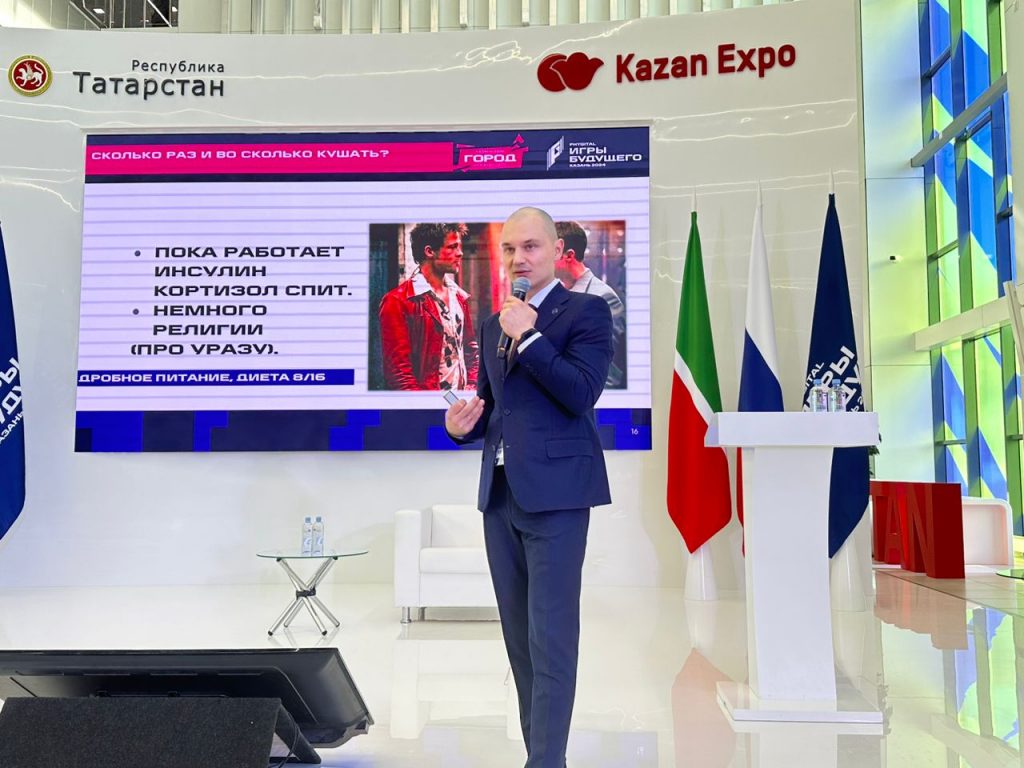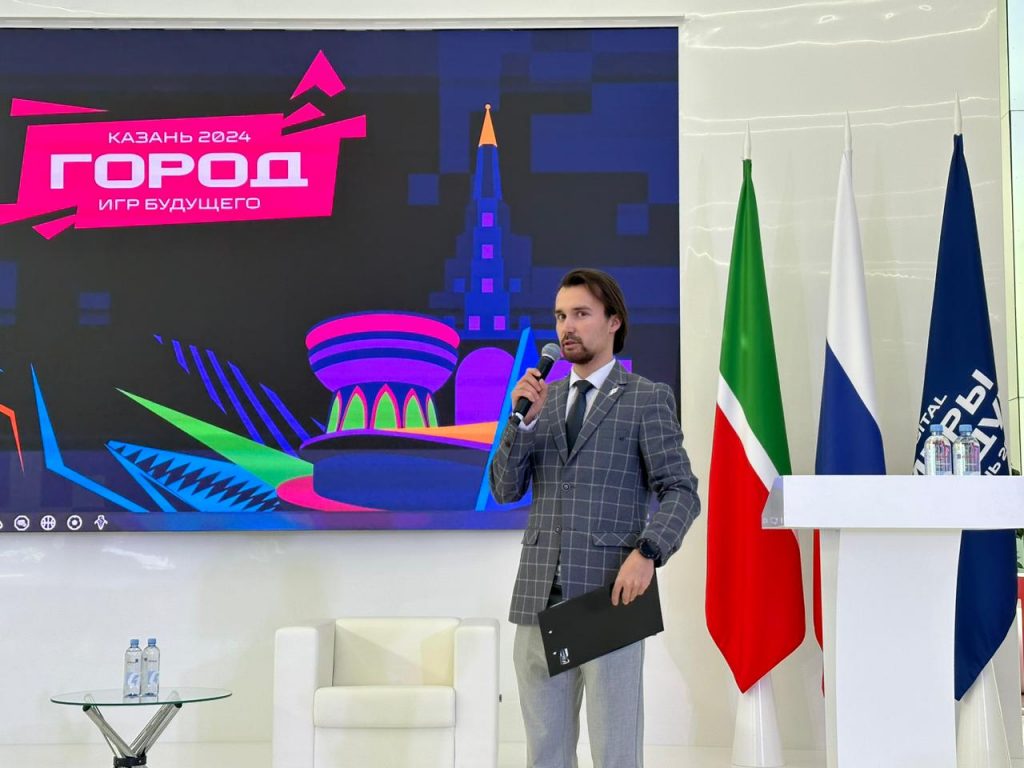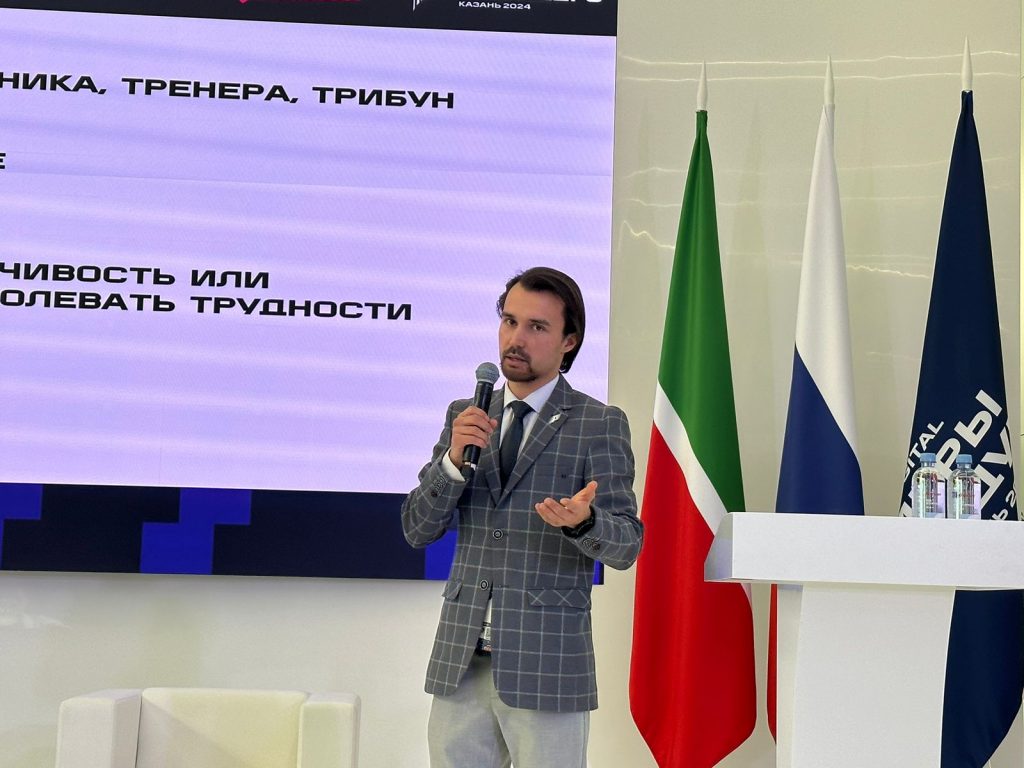KFU experts taking stage at Phygital Games of the Future 2024
A special thematic zone for popular science is organized during the tournament.
Future City, as the zone is called, featured an interactive space for esports, drone racing, speed coding, and other phygital disciplines. KFU educators presented two lectures on 25 February.
Deputy Chief Medical Officer for Development of the University Clinic Ivan Kiyasov talked about Foodgital, or What do an IT professional and Homo sapiens have in common.
At the beginning of his speech, he spoke about how humanity came to digitization, noting that still not everyone can adequately assess the scale of this kind of revolution.


“This is a very important moment for scientists, medics and inventors from the IT field. As soon as we digitized data, technologies such as blockchain and neural networks came into our lives, there were very rapid movements in terms of basic research in medicine. We are expecting robotization, which probably in 200 years other scientists will distinguish as a separate stage, and we will see it as something that will come into our lives by itself,” he said. “Just like computers, we have a processor – the brain – that controls all the processes of our lives. The brain has two helpers – the hormonal system and the immune system. The immune system can also be compared to computer technology like the Kaspersky system, i.e. it is a system that is constantly learning and protecting us from harmful substances from the external sphere – taking out enemies, preventing diseases, infections and so on. The hormonal system can be compared to the Windows shell, because it sets the work of our entire body. It signals certain organs to do and not to do something. If there is a problem with one of these systems, we start to get sick, work poorly, something in our life goes wrong.”
The scientist dispelled the myth about the benefits of split meals – It is much more effective, say, when losing weight to eat less often, but in a balanced way. The optimal number of meals per day is three.
“We have this hormone called insulin, which is responsible for parceling out all of our energy with food intake. The body needs a rest from this hormone, otherwise over time, when you follow multiple meals, you may develop insulin resistance or a similar condition,” commented Kiyasov. “We are what we eat. A neural network is a product of human action, and its response depends on your input. The same goes for health – with correct input, i. e. healthy diet, the organism will function properly.”
The medical professional also numbered five pillars of sound health – sleep, activity, diet, stress relief, and rhythmic living.


Another lecture was called Psychological aspects of training for phygital games and was presented by PhD student Denis Davydov. He spoke about psychological preparedness for competition, “First, you don’t need to be overly focused on the event and be obsessed with it. Secondly, you need to immerse yourself in a competitive environment as often as possible, that is, if you are afraid of competing, of making a mistake or maybe of the noise of the stands, you need to immerse yourself in it as often as possible in your daily life: training in this format, public speaking, participating in friendly matches and so on. Thirdly, especially if you are involved in a team sport, you need to do as many team-building activities as possible, because you may not be afraid, but your teammate might be.”
The listeners then asked questions and partook in a lively discussion.

